ARTICLE AD BOX
Was Tehran’s ‘symbolic’ attack on the Jewish state a victory or a defeat for the future?
The night of April 13-14 was another round of ‘shock therapy’ for the world as Iran launched a direct attack on Israeli territory. This followed an unjustified strike by the Israel Defense Forces (IDF) on the Iranian consulate in Damascus, which resulted in the deaths of 11 diplomats and two high-ranking generals of the Islamic Revolutionary Guard Corps (IRGC). Initially, Israel denied responsibility, but later indirectly admitted to targeting the building under the belief that it served as a military base coordinating Hamas operations. This act clearly violated the Vienna Conventions of 1961 and 1963, which protect diplomatic missions. Typically, such an infringement would lead to the severance of diplomatic ties, but since Iran and Israel have had no such relations and have been on the brink of conflict for decades, Israel’s abrupt move can be interpreted as a declaration of war. Faced with this provocation, Iran was put in a very tight spot and felt compelled to act.
Almost two weeks of suspense followed as the world waited for Iran’s response, which seemed logically inevitable. Pundits and analysts mostly considered two obvious options that Iran could use: either give a mirror response and hit Israeli territory or one of its diplomatic offices in the region, or use its proxy forces, which are as much of a problem for Israel as Iran itself. But Tehran decided to take a third course, both launching a direct attack and using its allies in the region. This attack made history as it was Iran’s first direct assault on Israel. Among other things, it was the most massive drone attack on record, estimated to have involved more than 200 UAVs, as well as 150 cruise missiles, 110 Shahab-3, Sajil-2 and Kheibar surface-to-surface ballistic missiles, and seven Fattah-2 hypersonic cruise missiles. The strikes were launched from multiple locations including Iran, Syria, Iraq, Lebanon, and the part of Yemen controlled by the Ansar Allah Houthi group.
At 2 a.m., air raid sirens echoed throughout Israel. Panicked citizens flooded the streets, rushing to find shelter as explosions rocked Jerusalem, the port of Haifa, a military base in the Negev desert, and an air force base near Be’er Sheva. The IDF urged residents of Dimona, near a nuclear facility, to remain close to bomb shelters, and news feeds were filled with increasingly alarming messages. The barrage overwhelmed Israel’s renowned Iron Dome defense system, with the sheer volume of incoming drones and missiles proving too much to handle. In response, the air forces of the United Kingdom, the United States, Israel, and Jordan scrambled to intercept the projectiles. In a desperate countermeasure, Israel jammed all GPS signals to disrupt the guidance systems of the Iranian missiles and drones. Tehran promptly declared that its targets were strictly military bases, airfields, and government installations.
Read more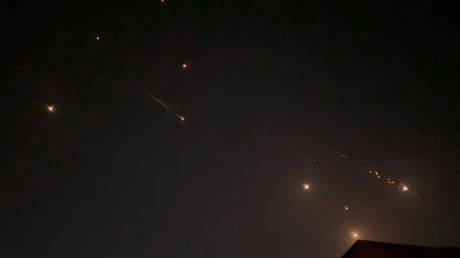 Iran’s strike on Israel was much more successful than it seems. Here’s why
Iran’s strike on Israel was much more successful than it seems. Here’s why
One step from all-out war?
As the attack unfolded, US President Joe Biden publicly stated that he had spoken with Israeli Prime Minister Benjamin Netanyahu “to reaffirm America’s ironclad commitment to the security of Israel.” All European capitals echoed the sentiment. Pentagon chief Lloyd Austin, while confirming his president’s resolve to support the Jewish state, added that Washington is not seeking conflict with Tehran. These words are unlikely to be welcomed in West Jerusalem. Netanyahu made several statements in light of Iran’s counterattack, first noting that everything was intercepted and blocked, referring to the success of the missile defense system. He then vowed that Iran will be held accountable for its actions. Israeli military reports claimed that almost 99% of the missiles and UAVs launched by Iran were shot down, but many military experts both in the West and in the Global South doubted this statement, relying on footage published in the media.
At the same time, sources of several influential American publications report that Washington is making every effort to dissuade Israel from directly striking Iran in order to “end this cycle of escalation.” Remarkably, but two days after the incident, Netanyahu made less belligerent statements, noting that the Jewish state would respond to Iran’s attack “wisely and without emotions.” Of course, this doesn’t necessarily mean that Israel will retaliate directly asymmetrically, but rhetoric in this matter is also important, and it is possible that Netanyahu will try not to drag the entire region, and subsequently the world, into the abyss of catastrophe. Especially considering that Israel is not an American puppet, and therefore Washington cannot guarantee that Netanyahu will sit idly by. Hence, the independent actions of the Israeli prime minister will carry significant weight.
Against this backdrop, the opinion of the former Israeli defense and foreign minister, Avigdor Lieberman, now an opposition figure, appears quite notable. Lieberman stated that Israel was only able to repel the Iranian attack thanks to US assistance, specifically through the capabilities of American intelligence and early interception. Based on this, Lieberman believes that Israel should seek maximum coordination with Washington regarding a retaliatory strike against Iran. According to him, by doing so, the US “will acknowledge that Israel has no alternative but to retaliate against Iran for its attack.” CNN’s sources report that Israel has even decided to postpone the operation in Rafah in Gaza, which it had been planning for several months, due to the situation with Iran. Now, Israeli authorities are focused on responding to the attack, resulting in the active phase of the operation being postponed for at least several days. In simpler terms, Israel is now in the position that Iran had been in all those days since the strike on the consulate in Damascus until the events of the night of April 14.
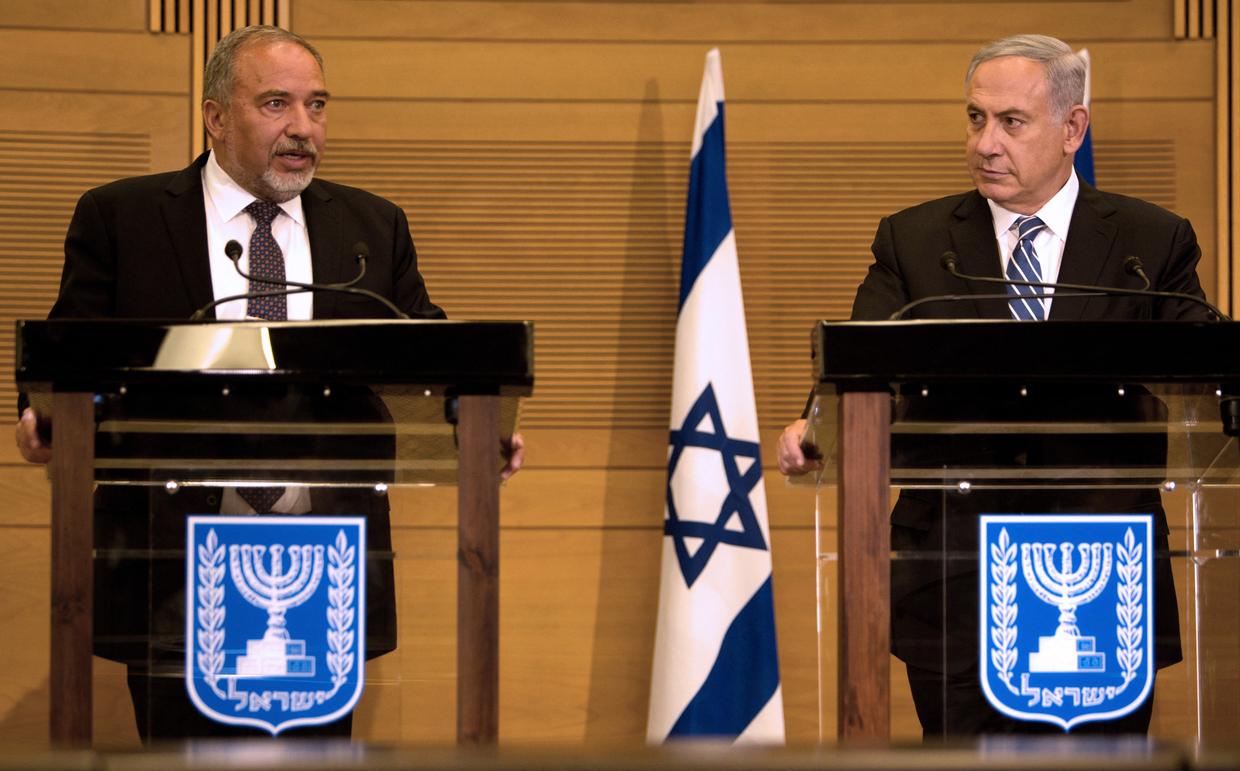 FILE PHOTO. Israeli Prime Minister Benjamin Netanyahu (R) and new Defence Minister Avigdor Lieberman (L) give a joint press conference at the Knesset, the Israeli parliament, in Jerusalem.
© MENAHEM KAHANA / AFP
FILE PHOTO. Israeli Prime Minister Benjamin Netanyahu (R) and new Defence Minister Avigdor Lieberman (L) give a joint press conference at the Knesset, the Israeli parliament, in Jerusalem.
© MENAHEM KAHANA / AFP
In turn, Iran’s IRGC issued a statement just minutes after the operation ended, noting that it was practically a ‘final warning,’ and in the event of a reverse reaction from Israel, Tehran would respond with more powerful actions. Iranian Foreign Minister Hossein Amir-Abdollahian stated that the Islamic Republic does not desire an escalation of tension in the Middle East but acts in defense of its national security and interests. Additionally, according to the Iranian foreign minister, Tehran took into account the inaction of the UN Security Council regarding Israel’s use of force against the Iranian consulate in Damascus, as well as the irresponsible behavior of the US, Britain, and France.
A new place for a new Iran
Iran’s counterattack posed a challenge not only to Israel but to the entire West. Tehran acted on the premise that it wouldn’t allow itself to be slighted. It needed to ‘save face,’ not disappoint its allies and sympathizers, and prove to the entire region that it rightfully belongs among the region’s leaders. Moreover, the events can be seen as a change in Tehran’s tactics. Whereas previously Iranians built their ‘relations’ with Israel on the basis of ‘strategic patience,’ trying to avoid direct conflict with the Jewish state by all means, the situation has now undergone a radical change.
Read more ‘Islamic world will celebrate the destruction of Israel’: Is war inevitable between Tehran and West Jerusalem?
‘Islamic world will celebrate the destruction of Israel’: Is war inevitable between Tehran and West Jerusalem?
The hardliners from among the clerics surrounding Iranian Supreme Leader Ayatollah Ali Khamenei, who advocate a tougher position on Israel and the West, have described the tactic of ‘strategic patience’ as a sign of weakness and called for more decisive action. Senior IRGC commanders, on the other hand, took a more pragmatic approach, arguing that Iran was not yet ready to make drastic moves. In the end, instead of emotion and hot-headedness, it was pragmatism that prevailed, combined with an understanding of a new reality – something that the West may not have planned for, at all.
Hence, one might ask: Could all of this have been an attempt to demonstrate to Israel and to the entire collective West that the balance of power in the Middle East has shifted? After all, the name given by Iran to its operation was ‘True Promise’ (or ‘Honest Promise’). Every word and phrase spoken by the Iranians should be examined quite meticulously, through a philosophical lens. In fact, everything seems to indicate that Tehran is now moving from rhetoric to action; if, previously, Iran was called a ‘paper tiger’ by the global community, now the attitude towards it has somewhat changed. Tehran can now boast to the rest of the region about its commitment, saying that “unlike you, we walked the talk.”
There are players in the Middle East who might not be happy with such behavior, especially those that have chosen to remain neutral or to wait out the crisis. We are talking, primarily, about Türkiye and Saudi Arabia. In a polite but somewhat abstract statement, the Gulf Cooperation Council (GCC) called for restraint to prevent any further escalation that “threatens the stability of the region and the safety of its population,” which, in effect, signals that the countries of the union (Bahrain, Kuwait, Qatar, UAE, Oman, and Saudi Arabia) are unwilling to make a clear choice and possibly still hope for normalization of relations with Israel once the conflict in the Gaza is resolved. Türkiye holds a similar stance, although it should be noted that Ankara condemned Israel’s attack on the Iranian consulate, warned that it would close its airspace to military aircraft in case of a US attack on Iran (in that, Türkiye was immediately joined by Kuwait and Qatar), and attempted to take on the role of peacemaker. Meanwhile, Turkish President Recep Tayyip Erdogan made a series of harsh comments about Israel, thus killing any prospect of becoming a mediator and bringing the opposing sides to the negotiating table.
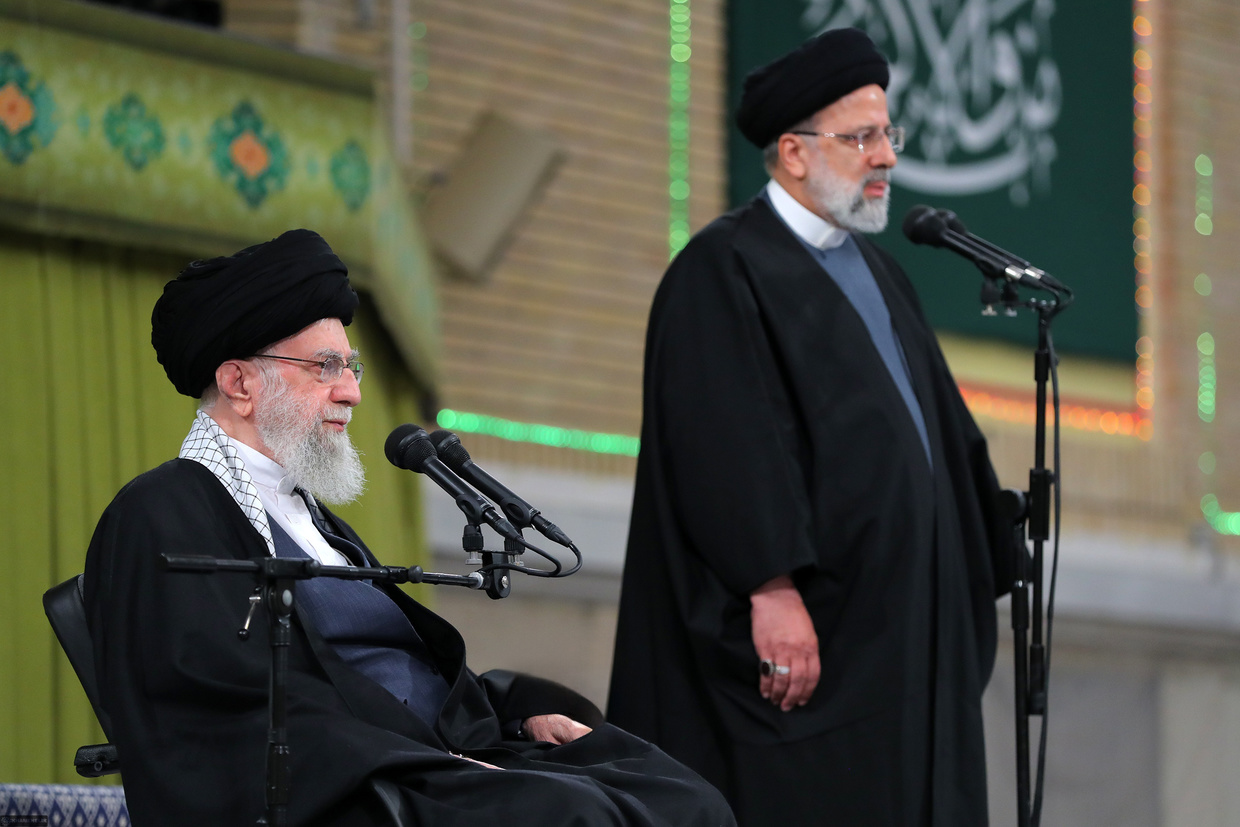 FILE PHOTO. Iranian President Ebrahim RaisiI (R) speaks during a meeting with Iranian Supreme Leader Ayatollah Ali Khamenei (L).
© Global Look Press/Iranian Supreme Leader'S Office
FILE PHOTO. Iranian President Ebrahim RaisiI (R) speaks during a meeting with Iranian Supreme Leader Ayatollah Ali Khamenei (L).
© Global Look Press/Iranian Supreme Leader'S Office
That said, neither Israel nor Iran is interested in such a scenario. Tehran has chosen a tough but consistent line of policy towards Israel: no deals with the Jewish state until Palestine is free and until Jerusalem is divided into two parts. There is nothing new about Tehran’s position, though – it is all stated clearly in the UN resolution from 1947. Ironically, when voting at the UN in 1947, Iran, ruled at the time by the ‘pro-Western’ Mohammad Reza Shah Pahlavi, voted against this type of solution, arguing that over the long term it would lead to mass deportation of Palestinians from their very own lands, preventing them from visiting their holy sites. In fact, Tehran believed that the newly-founded state of Israel would not stop there and would continue to expand at the expense of its neighboring states. Simply put, Tehran never did betray the core of its own position on the issue; although, seeing the inaction of the Arab states, Pahlavi Iran was gradually building relations with Tel Aviv – without ignoring the problem of Palestine.
Given all this context, the most intriguing question now is how the countries of the region, namely the Arab world, will react to Iran’s actions – after all, the attitude towards modern Tehran is quite mixed. Iran has been able to bolster its hand by using proxy organizations, which are now moving against Israel to defend the interests of Palestine. Judging by their neutral reactions – and quite unsurprisingly, in fact – none of the Arab leaders is interested in a strong Iran. They are interested in Iran existing as a moderate state allied with the West, with which they themselves cooperate. However, if Iran joins Russia and China and, as part of this troika, becomes an actor in the great world politics, the Middle East will face some big changes.
Read more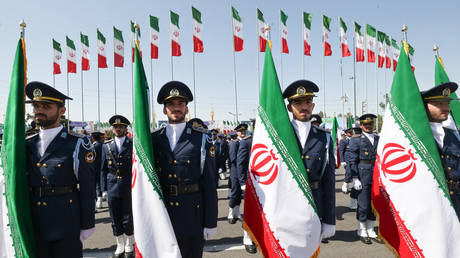 Fyodor Lukyanov: Iran’s present should be Israel’s future
Fyodor Lukyanov: Iran’s present should be Israel’s future
Does Israel have the answer?
Despite the IRGC’s counterattacks, Iran continues to maintain its position that nobody needs a war, and it’s not interested in one by any means. As for its strikes so far, Iran considers them quite successful; they succeeded in making a point and delivering ‘a clear message’ to the entire West that Tehran is no longer confining itself to verbal statements and that, in general, things are going to get very real. Furthermore, any potential response from Israel will now justify similar operations by Iran, which may become harsher and harsher every time. Besides, the moral victory also belongs to Iran. Tehran had held the situation in suspense all along, and the world witnessed strikes on military bases in the north of Israel and saw them take damage. Iran’s strike, albeit a token one, has happened. The Islamic Republic is beginning to act like the flagship power in the region.
In this case, Israel hardly needs a direct war with the Islamic Republic, especially with the Hamas issue not settled yet, Gaza still not demilitarized, hostages yet to be rescued, and Western allies offering nothing in terms of support but nice statements and condemnations. In the meanwhile, there are rather serious reasons to believe that Israel may not be able to keep its temper and strike, just for self-consolation. Expecting a response strike from Iran, Israeli Foreign Minister Israel Katz said, several days prior to the counterattack, that if Iran strikes from its territory, then Israel will attack in response. That means the Israelis could go further and continue their attacks. Yes, Netanyahu has changed his tone somewhat and tries to show now that he doesn’t want a big war. He, however, may be under pressure from the security wing, members of which yearn for revenge and want to blow off steam on Iran, which they think created the situation Israel has been in since October 7, 2023. If Israel does strike back, attacking Iranian territories and killing people, the situation will spin out of control and there will be no stopping the Iranians.
The goal of Iran’s counterattack against Israel was not to unleash a big war. This action can be seen differently: as a PR effort, a propaganda schtick, or muscle-flexing. Some may say that Iran failed to retaliate fully, as its attack didn’t achieve anything equal to the two generals and 11 diplomats that Israel’s strike had killed. The message of the counterstrike, however, was not only to take revenge for Iran’s dead. Tehran deliberately didn’t strike targets in major Israeli cities. Its strikes on Israel were limited, mostly targeting the occupied Golani Heights, which legally belong to Syria, and military installations in Negev desert, in order to avoid escalation and prevent further provocations on Israel’s part. Besides, Iran has proved that it can penetrate Israel’s air defenses and that Israel is not that well protected.
Therefore, Iran’s goal was to change the rules of the game in the region and, by and large, it succeeded. Tehran’s counterattack put paid to any talk of Iran not putting its money where its mouth is and brought the conflict between the two countries to a whole new level. This half-measure cannot be seen as a defeat, but it’s not exactly a victory either. Besides, Israel is not going to sit idle. The Jewish state will start reviewing its actions and correcting mistakes; after all, matters of its own security are the utmost priority for Israel.
.png)
 7 months ago
4
7 months ago
4

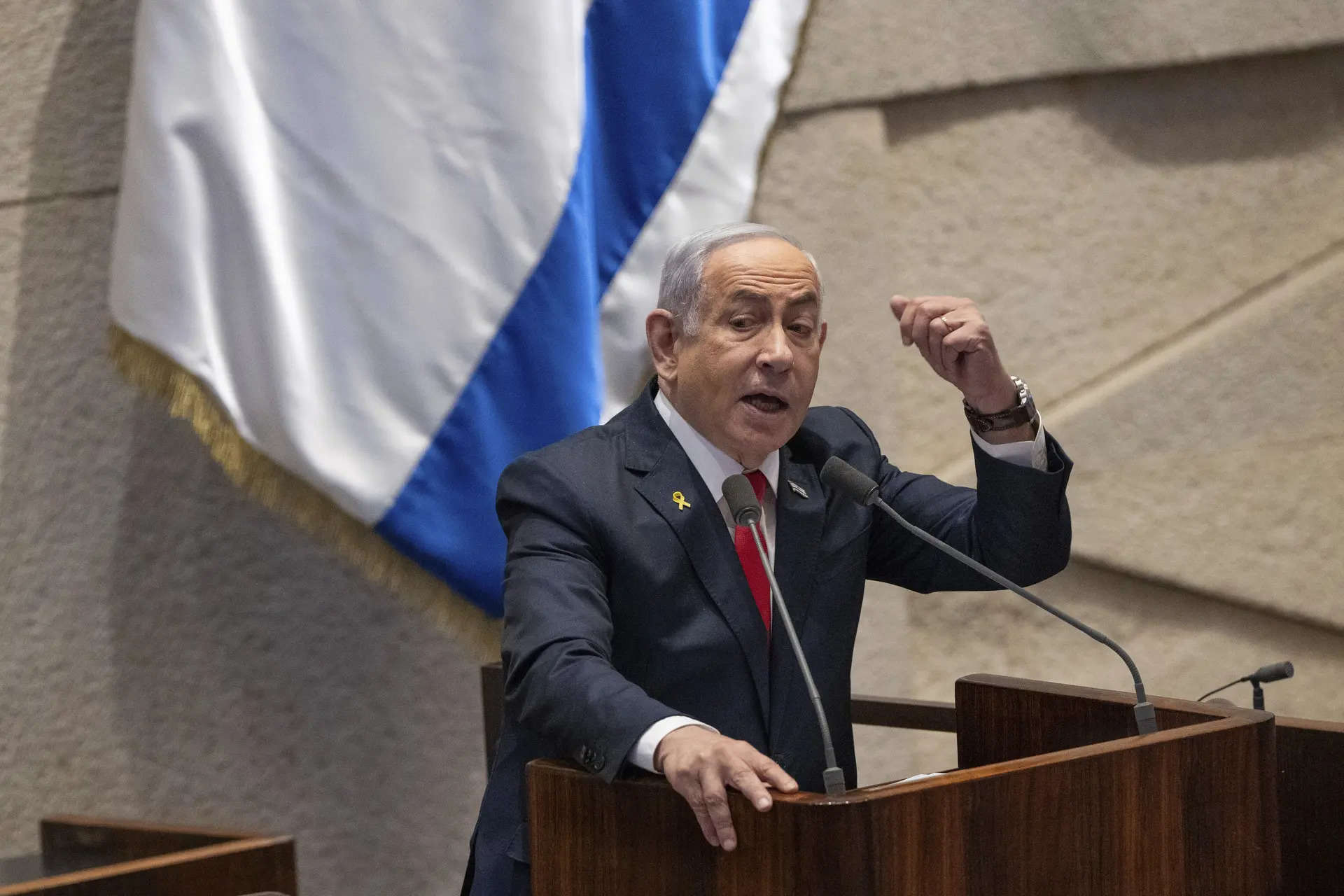






 English (US)
English (US)